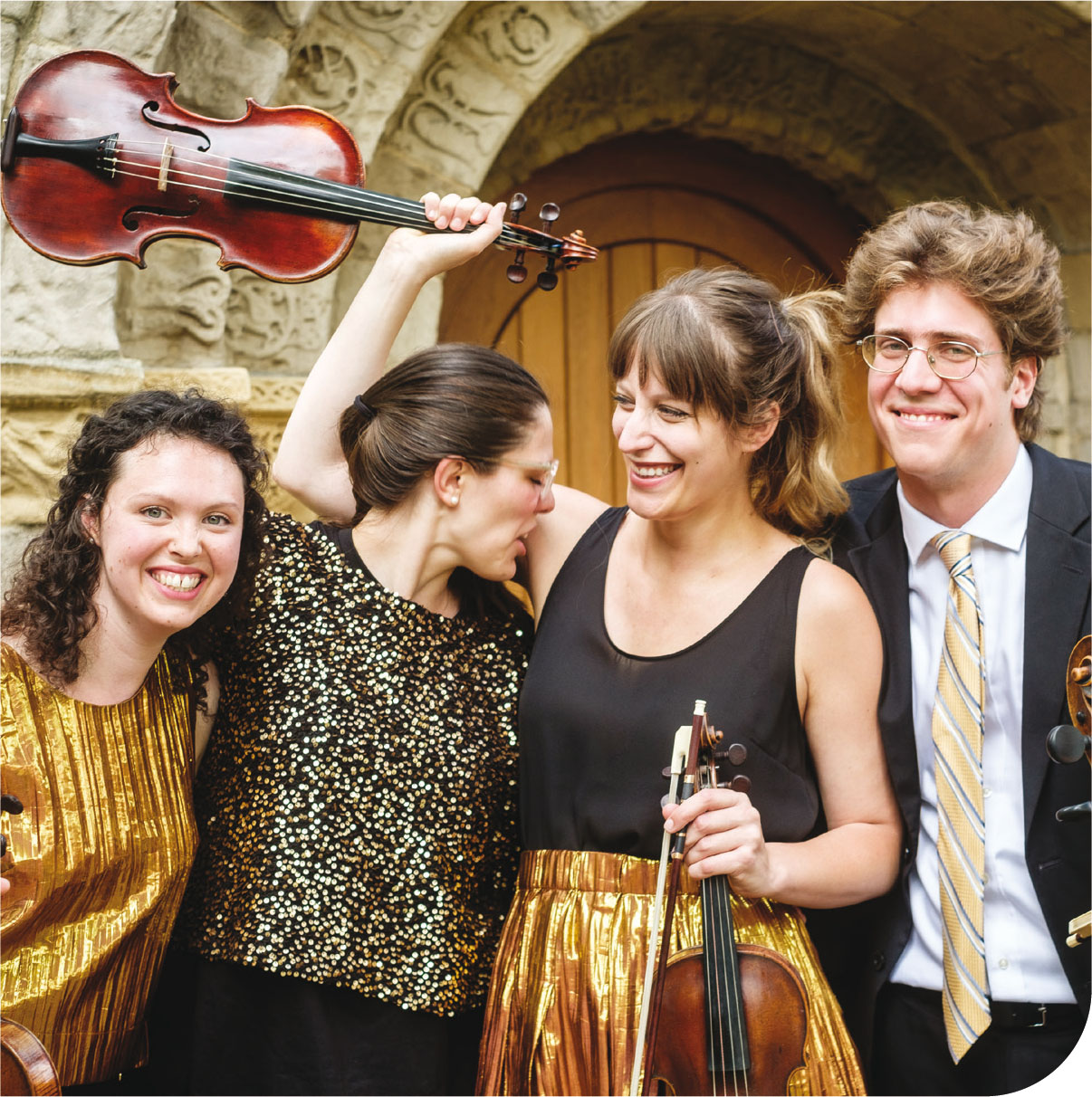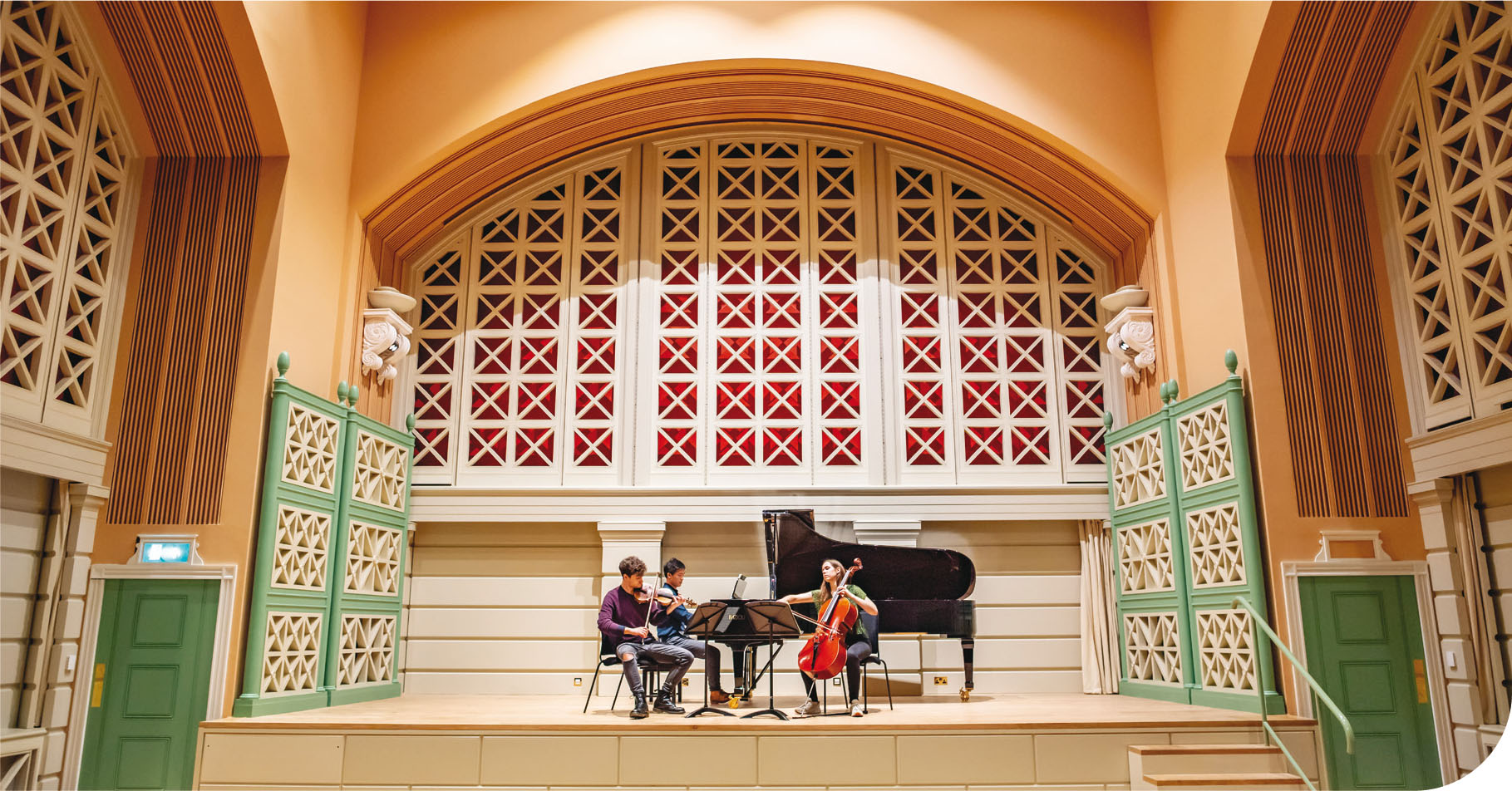
The transition into professional performing can be problematic for many musicians emerging from conservatoires. But while young string quartets, for example, can tap into a strong culture of post-study support, their baroque chamber music counterparts find it all too easy to give up ambitions of regular ensemble work in the UK for freelance orchestral playing, or for opportunities abroad.
One remedy may come in the shape of the New Generation Baroque Ensemble scheme, a new co-partnership between BBC Radio 3, the National Centre for Early Music in York (NCEM) and the Royal College of Music (RCM) in London.
‘We've collectively been aware for a while that there are ever fewer British-based instrumental ensembles who are thriving,’ explains NCEM director, Delma Tomlin. ‘It's a mixture of the cost of accommodation, cost of education and the need to crack on and get a job that means fabulous musicians are disappearing straight away, rather than creating ensembles like the Palladian Ensemble or Florilegium. How do we start to support them in a very complicated environment at the moment and to try and keep people together?’
The ensemble chosen after a non-competitive process will follow a two-year programme centred on residencies at the RCM and NCEM and a regular presence on BBC Radio 3. Each institution will provide support and opportunities in their areas of expertise.
‘Part of the award involves work at the Royal College of Music,’ says Ashley Solomon, co-founder of Florilegium and now head of historical performance at the RCM. ‘Working side by side with our current historical students; having the ability to work with our professors and still be in a nurturing environment; giving them possibilities to rehearse in our space; utilising the collections of instruments and manuscripts in the museum: hopefully we will foster an engagement with this young ensemble which will give them a broader base of support at the critical moment when they need it.’

The Butter Quartet, outside the NCEM, after winning the ‘EEEmerging prize’ at the 2019 York Early Music International Young Artists Competition
The NCEM will focus on opportunities for performance and outreach as part of the centre's day-to-day work. There will also be guidance on making their way in the professional world.
‘They will be invited to come to the Beverley Festival, one of the festivals that we run, so they can start to learn, themselves, how to curate,’ explains Tomlin, ‘and how they themselves need to engage with an audience, in order to develop all those skills as well. Professional development is all about administration, marketing, the digital stuff they need to put together.’

The chosen ensemble will get the opportunity to perform in the Royal College of Music's Performance Hall (Image: Phil Rowley)
The BBC offers a third platform, with Radio 3's New Generation Artists programme providing a well-established framework for the new project. ‘With the New Generation Artists scheme, most of the people have been really successful,’ says Edward Blakeman, Radio 3's head of content and commissioning, ‘and therefore we keep a relationship with them, because we want to. We have a weekly programme, the Early Music Show, on a Sunday at 2 o’clock, and we will be linking the ensemble on the scheme into it, right from the beginning. One of the things that will allow us to do is tell some of the story of how it develops for them: we can get bulletins on how they are doing, as well as some of the things they are recording in the studio for the programmes.’
The intention, before Covid-19, had been to launch the NGBE scheme this autumn. The selection of an ensemble has, however, been put back a year. Meanwhile, a development workshop, open to application from potential future NGBE candidates, is scheduled at the RCM on 15 November. A further workshop in York is envisaged, should there be demand for it.
The importance of an ‘enquiring mind’
In terms of what teachers can do to encourage a burgeoning Baroque performer, Ashley Solomon feels that an investigative spirit, the knowledge to look beyond the well-known, and the willingness to simply get stuck in are essential qualities:
‘The important thing to remember is that Baroque music is accessible for everybody and you don't have to own the precise tools in order to enjoy playing it. You wouldn't necessarily expect schoolchildren to be playing Baroque instruments. There are some specialist schools that do, of course, but it's a love and appreciation of what Baroque music has to offer a musician as player and listener that's important. The fact that it's based on a lot of dance music means it's instantly appealing to everybody, and the form is often quite straightforward, meaning it's easy to digest and understand.
‘Look a little further than the big composers they all know – Vivaldi, Bach and so on. There are some less famous composers who wrote fantastic, inspirational music. We even notice at the Royal College of Music that first year undergraduates come thinking that Baroque music – or their repertoire, if they are violinists – started with Bach. Looking backwards from there, there are 5,000 pieces written for violin before Bach! If that could be engendered at secondary level, before students get to tertiary level, then the candle begins to flicker a little in the enquiring mind that all musicians need.
‘Those thinking musicians out there who have experimented, and then come to the conservatoires with an open mind to experiment with this repertoire – we can give them the tools to develop and foster their relationship with this music and with historical performance.’
‘What I'm looking to discover in this workshop is the level and quality of young chamber ensembles that could be considered for the scheme,’ says Solomon, stressing that it is in no way an audition. ‘Seeing what their potential is; seeing how they work, how they develop quickly in a short space of time: it's looking at potential and excellence, together.’
The organisations are committed to continuing the scheme beyond its eventual launch in September 2021. A second group will be chosen in 2022, and the pattern of annually overlapping appointments will continue thereafter.
‘It has been hard in the early music world,’ says Blakeman, ‘and the amount of sheer ingenuity and entrepreneurship that people have shown is extraordinary, right from the beginning of the early music movement. I don't think it's any easier now than it was then, really. To be able to see, every so often, that there might be a scheme or an opportunity that you can aspire to is, I think, helpful.’








